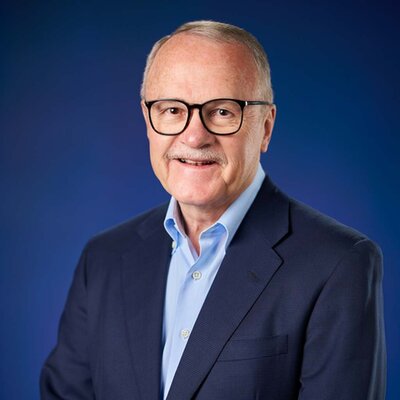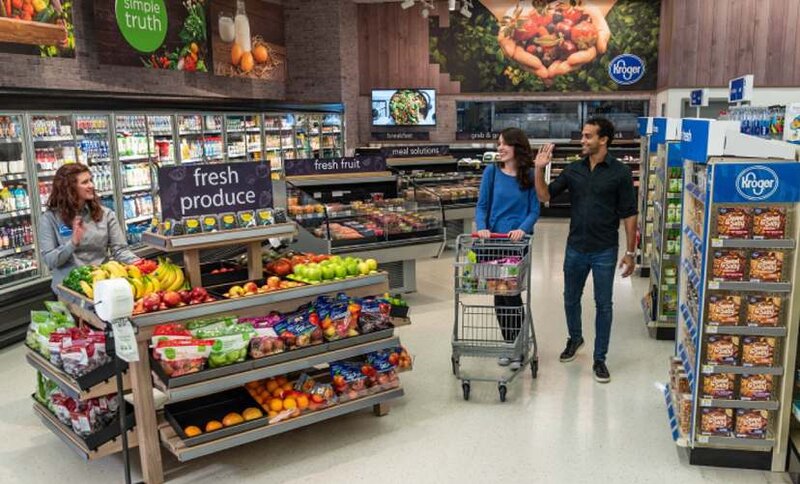Kroger’s Next Chapter: AI, E-Commerce, and a Leadership Pivot
In March 2025, the grocery industry was jolted by the sudden departure of Rodney McMullen, Kroger’s CEO since 2014. McMullen had been instrumental in expanding Kroger’s digital capabilities, growing its private-label brands, acquiring Harris-Teeter, Mariano’s, and Roundy’s, and driving supply chain efficiency. His leadership positioned Kroger as a formidable challenger to Walmart, Amazon, and Costco. But his exit comes at a precarious moment — amid a $600 million lawsuit over its failed $24.6 billion Albertsons acquisition, fierce competitive pressures, inflationary headwinds, and import tariffs.
Ronald Sargent, newly appointed interim CEO and chairman, brings history with Kroger, having worked at store level and in sales, marketing, and manufacturing early in his career. His immediate task: steer the company through the Albertsons legal battle while maintaining growth momentum. “Both the next CEO and I will have to quickly get up to speed on the intricacies of the lawsuit,” Sargent acknowledges, noting its far-reaching implications for the grocery sector.
Kroger is leaning heavily on artificial intelligence to enhance product visibility, reduce inventory loss, and improve productivity. “We’ve seen good progress [around shrink]… we’ve made some investments in AI-enabled technology and deployed new processes around that technology,” says CFO David Kennerley.
The company has also introduced a virtual AI assistant for associates, credited with record store and company retention. “When our associates stay longer, they learn more, take on additional responsibilities and deliver a better customer experience, which leads to better sales,” says Sargent.
Leadership at a Crossroads
AI-Powered Efficiency and Associate Experience
When our associates stay longer, they learn more, take on additional responsibilities and deliver a better customer experience, which leads to better sales.


— Ronald Sargent, Interim CEO, Kroger

E-Commerce as the Growth Engine
Precision Marketing Meets the Store Aisle
The Road Ahead
Online sales rose 15% year over year in Q1 2025, with delivery leading the surge. Kroger has created a dedicated e-commerce division under EVP and Chief Digital Officer Yael Cosset, unifying digital teams to provide a more personalized and efficient customer journey. “These improvements are attracting new households to e-commerce and giving our current households more reasons to shop with us,” Sargent says.
The new business unit focuses on deploying advanced technology, boosting fulfillment density, and accelerating retail media growth. While e-commerce is not yet profitable, Kroger delivered its “best profit improvement yet” last quarter and remains committed to making the channel a moneymaker.
Kroger’s retail media arm, 84.51°, recently unified its media, consumer insights, and loyalty marketing under Kroger Precision Marketing (KPM). The move enables full-funnel brand growth, integrating promotion, assortment planning, and media activation in one team.
KPM’s latest in-store digital advertising, powered by Barrows Connected Stores, is bringing animated, brand-driven storytelling into aisles. “The physical store is one of the most underutilized platforms for brand storytelling,” says Christine Foster, SVP of KPM. “This is not about retrofitting TVs to walls. It’s about bringing inspiration into the in-store shopping experience — seamlessly and meaningfully.”
For Kroger, the coming months will be pivotal. Leadership change, the Albertsons lawsuit, and intensifying competition from retail giants demand agility. Yet, with a robust AI strategy, an expanding e-commerce platform, and a growing retail media business, Kroger is positioned to not only navigate disruption but also redefine the grocery experience — both online and in-store.

Kroger’s Next Chapter: AI, E-Commerce, and a Leadership Pivot




